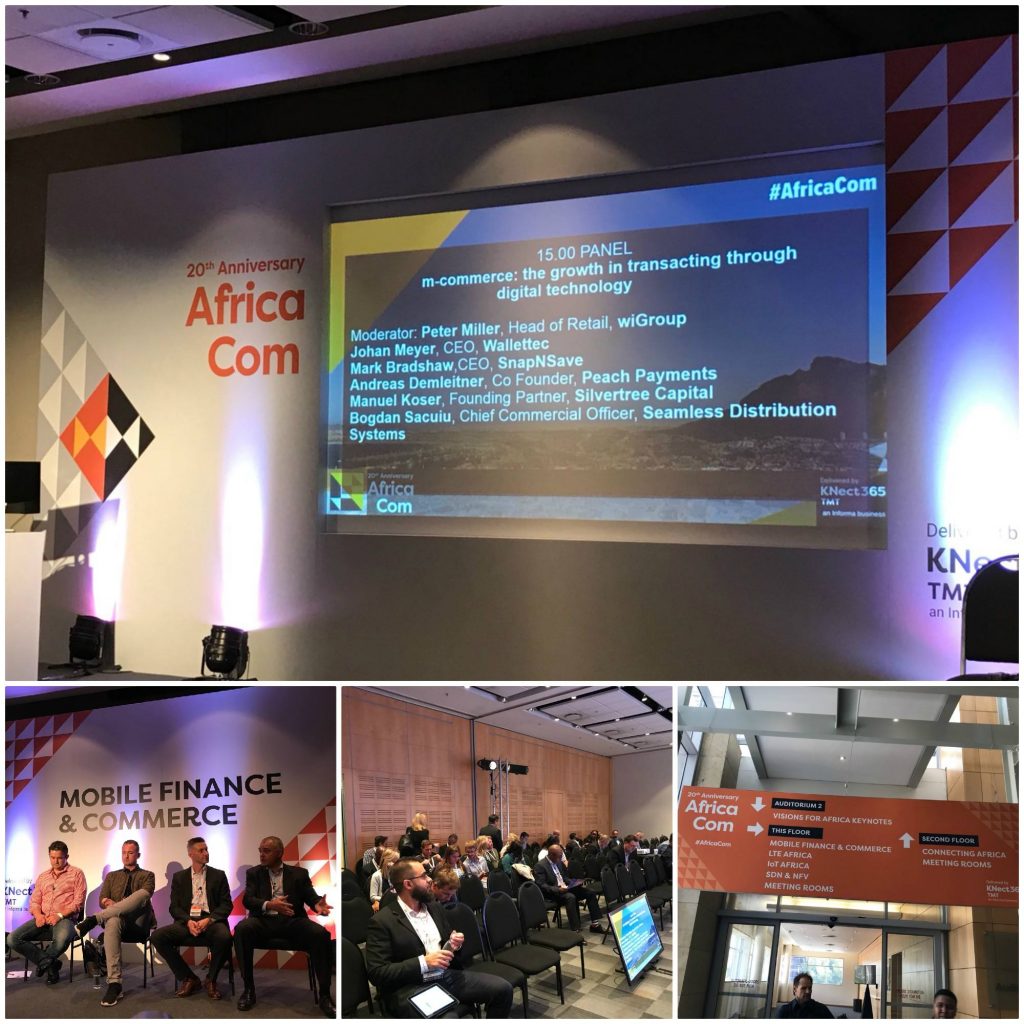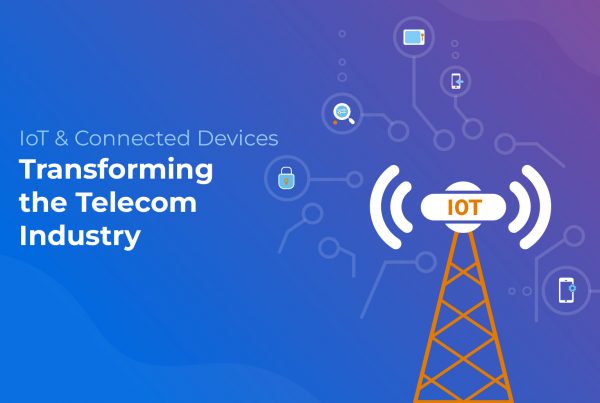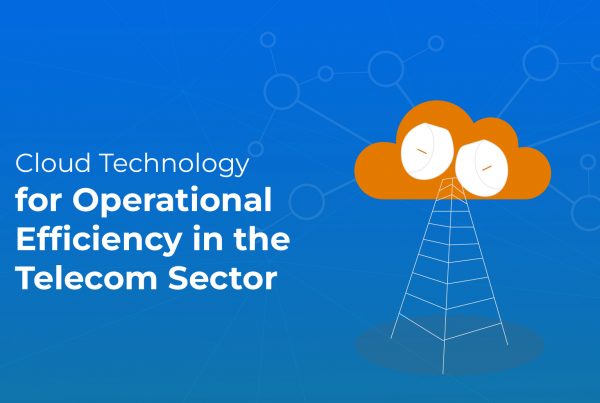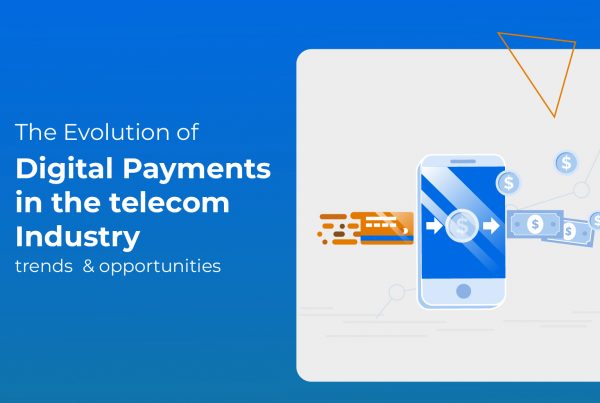Africa’s largest tech event has made a lasting impression with a record-breaking number of visitors, exhibitors and speakers at AfricaCom this year. Discussions spanning across the three-day conference were centered primarily around ensuring connectivity across all parts of Africa. Speakers highlighted various opportunities for entrepreneurs as well as the rapidly evolving role of MNOs in digital landscape.
Using innovation and creativity to solve Africa’s problems was therefore a key buzzword at AfricaCom 2017. Click To TweetThere were various discussion streams including Connecting Africa, Innovation Stage, IoT Africa, Mobile Finance and Commerce as well as Visions for Africa Keynotes. Bogdan Sacuiu, Chief Commercial Officer at Seamless Distribution Systems, was invited to speak at a panel discussion in the Mobile Finance and Commerce stream on the first day. Bogdan has more than 20 years of experience in the areas of digital distribution, transactions and payments, specializing in the domain for telecom operators. Moderated by Peter Miller of wiGroup, Bogdan’s discussion stream was joined by executives from Wallectec, SnapNSave and Peach Payments. Conversation in the panel discussion centered around the topic of “m-Commerce: Growth in transacting through digital technology”.

AfricaCom
The panel discussion started with a brief introduction from the executives followed by comments on the role of transactions conducted through mobile technology in every day life. With smartphone penetration in Africa on the rise, mobile phone plays a crucial role in enabling easy and quick transactions “on the go”. It provides ease of access to information as well as option to have a wide array of services delivered digitally. The following were the key discussion points:
- The meaning, role and importance of “m” in m-commerce:
“M” in m-commerce could be perceived differently based on varying situations and transactions. It could stand for “mobility”, in the sense that it allows a transaction to be undertaken anytime, anywhere or it could mean “mobile” as in the channel that enables commerce. Regardless of what exactly this “m” means, there is unanimous vote that with recent technological advancements, mobile now acts as a layer in every financial/digital transaction.
- Elements of a financial transaction:
To understand how transactions in digital landscape work and to design a viable ecosystem to enable those transactions, it is vital to understand the elements of a financial transaction. Matching (buyer seller interaction), Reconciliation (movement of funds from one place to another), Confirmation (both for payer and payee), Receipt (proof of transaction) are the four pillars on which a financial transaction is built.
- Channel for Africa:
The most commonly used channel for digital transactions in the African market is either through USSD or a smartphone application. The smartphone penetration is on the rise but still low, hence the need to have various channels to accommodate basic and advanced users.
- Technology trends in Africa:
Growth of transacting through mobile devices is on the rise. The latest trend in Africa is for mobile wallets with many specialty services (for all the basic to advanced customer needs) utilizing and offering personalized mobile wallets. This is expected to break customer hesitation and increase trust in financial transactions over mobile.
- Localized transaction ecosystem:
Mobile penetration and working model of payments and transactions in Africa differs a lot based on regions. Some areas of Africa, like South Africa and Nigeria have higher smartphone penetration as opposed to other regions like Uganda. Hence, every market needs a separately designed and localized ecosystem for enabling transactions. No “one size fits all” solution.
- “Digital Banks”:
With industry-wide consolidation, mobile operators and banks are merging to create “digital banks”. These banks rely on using subscriber MSISDN (unique mobile number) as the account number and enable him to carry out financial transactions through that.
- Accelerating trust in mobile technology:
Last but not the least, instead of chalking out innovative products without building consumer trust, focus of emerging and established companies needs to be on the problem or “need” of the consumer. This will in turn create frequency in usage leading eventually to habitual use. Urgent and short-term needs can be artificially induced by pumping money to market the product. However, this strategy has little impact on long term usability. Repeated purchases have to be incentivized to accelerate user trust.


